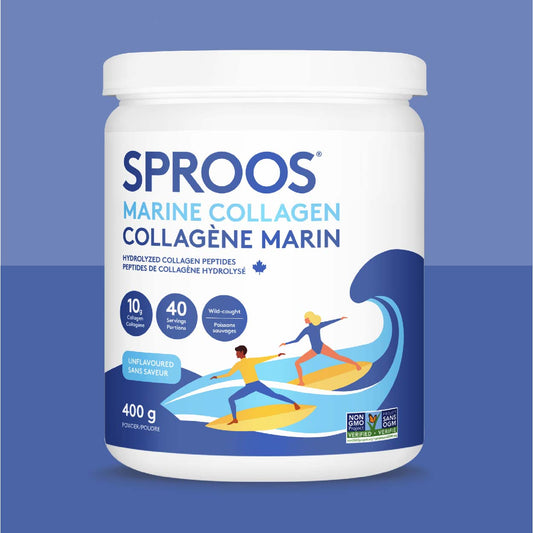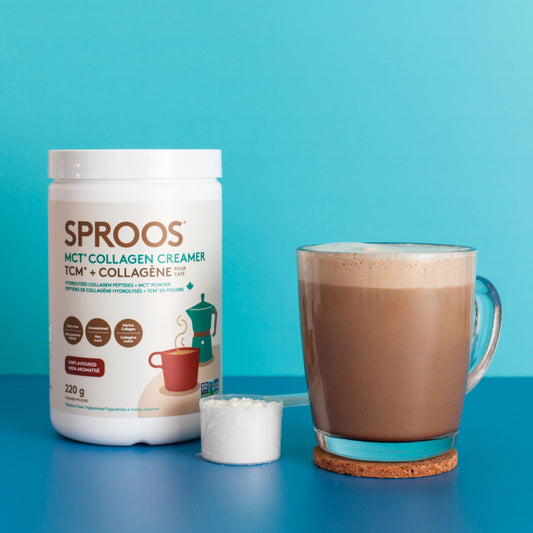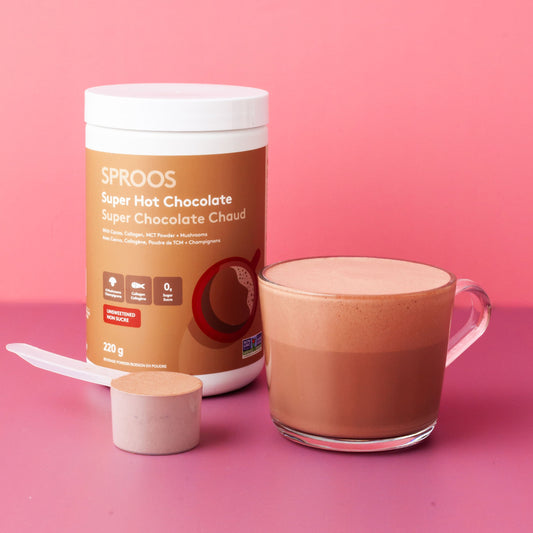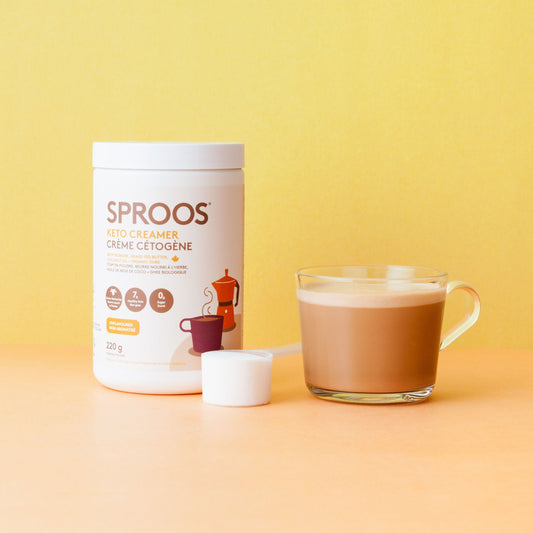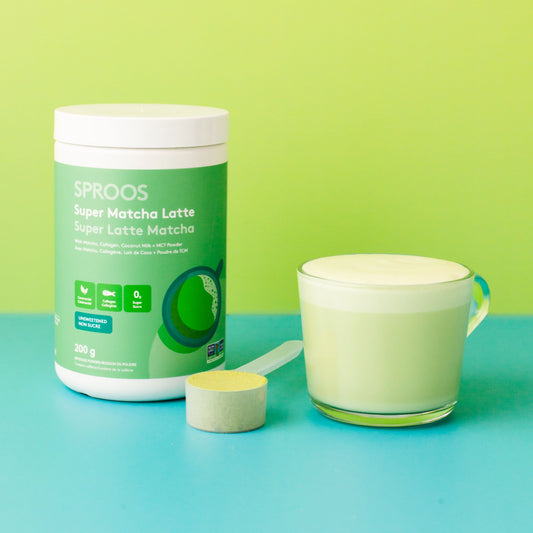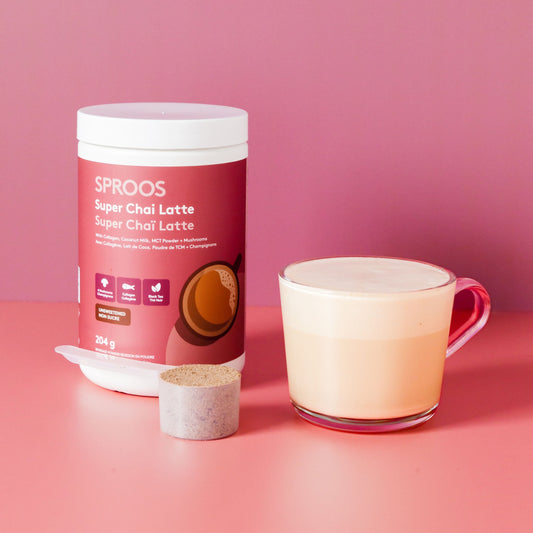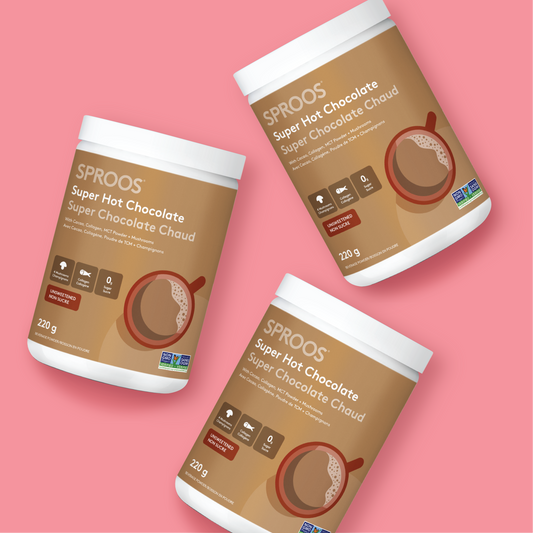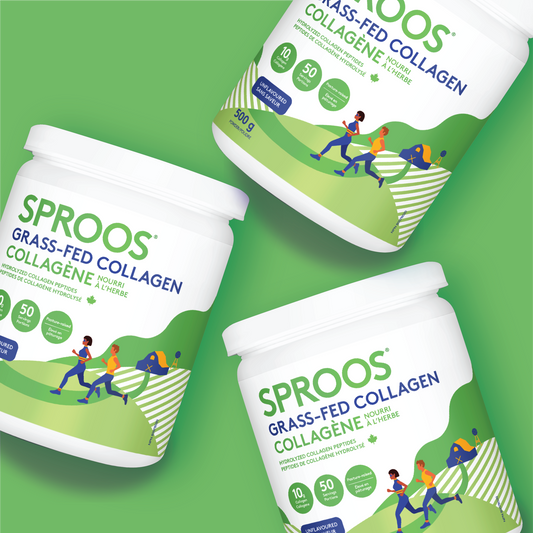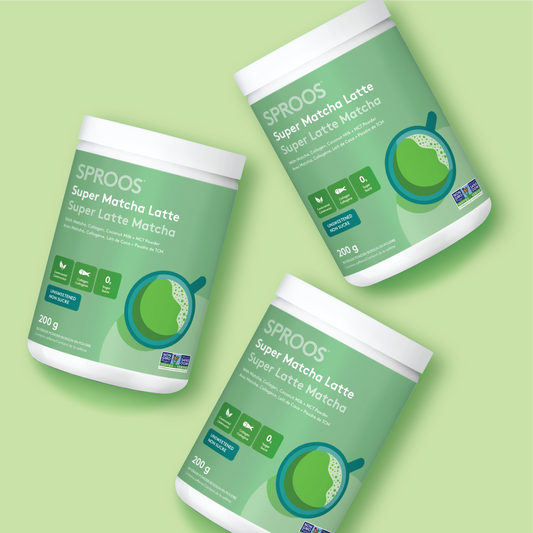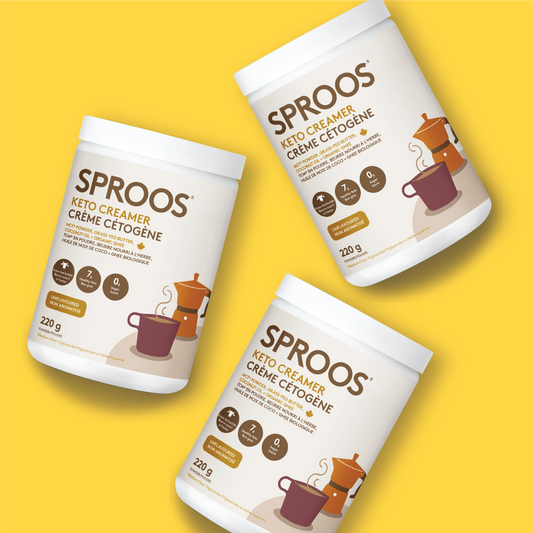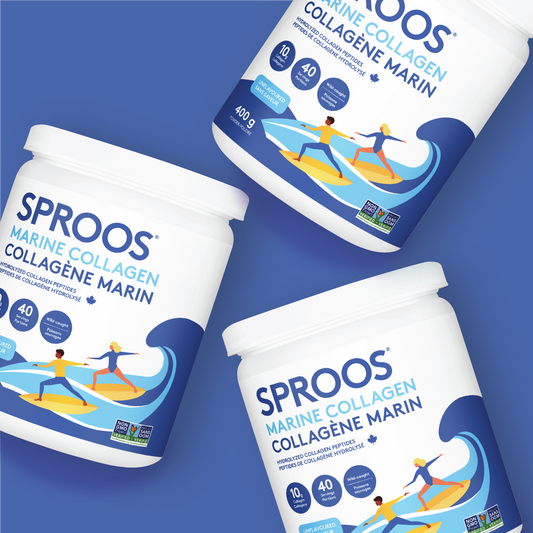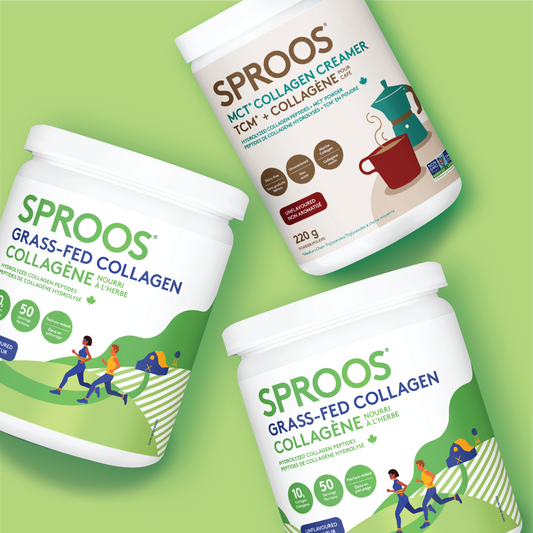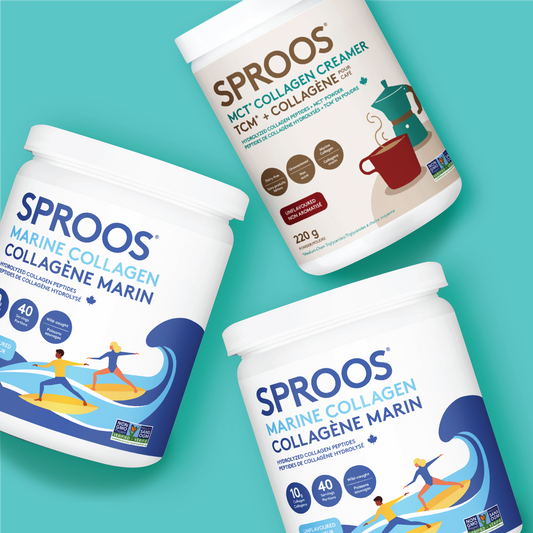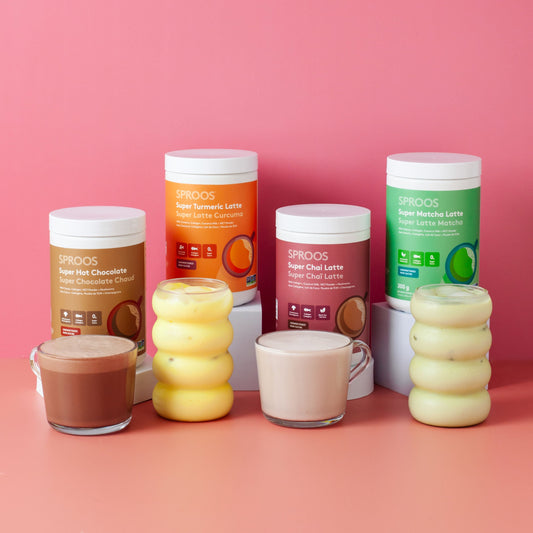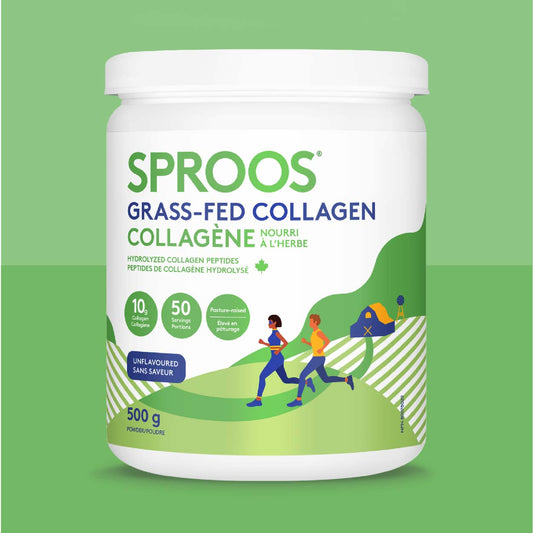Collagen-rich foods? Yep, you heard us right.
Trying to increase your collagen intake, but don't know where to start without piling on the supplements? Well, look no further. There are plenty of collagen-rich foods out there to add to your diet. Even better, there's also certain nutrients in foods that promote collagen production in the body!Back to Basics: Collagen 101
Before we get into it, let's cover some of the basics. Collagen is the most plentiful protein in the body, making up 30-40% of the body's proteins. Collagen is a major structural component of connective tissue. It provides the foundation or "glue" for bones, muscles, tendons, ligaments, blood vessels and skin. Considering its amount, collagen without a doubt has an important presence in our bodies. It contributes to our joints, improves our gut health, enhancing skin elasticity and strengthens hair and nails. Ultimately, collagen supports our health. You may have heard that collagen breaks down as we age. To make matters worse, our bodies struggle to replenish the lost collagen. While aging threatens our natural collagen production, diet is one way to maintain our collagen levels and our health.Certain foods contribute to collagen production.
Our bodies create collagen by relinking broken down proteins, called amino acids. Then, our bodies reorganize the amino acids to form collagen peptides. This process requires dietary protein as a source for amino acids. Other nutrients are also necessary in this process to help form collagen.
There are two food types that promote natural collagen production:
- Foods that naturally contain high levels of collagen
- Foods that contain nutrients that promote the building of collagen in our bodies
What are some foods that naturally contain lots of collagen?
There are actually quite a few foods that are high in collagen that we can add into our diets. These foods directly supply our bodies with collagen. Animal-based foods are often excellent sources of collagen. Some collagen-rich foods include protein-packed options such as fish, lean meats, bone broth and eggs.Fish
Fish is considered to have some of the highest levels of collagen and have one of the most absorbable sources of collagen. According to a 2016 study, collagen peptides from fish skin showed anti-aging protection. This was through improved collagen distribution, structure, and skin elasticity. Consuming the meat of the fish supplies high enough collagen levels. But did you know that consuming parts of the fish like the scales or skin are especially valuable? That's because the scales and skin of fish are extra high in collagen!Lean Meats
Protein-rich lean meats including chicken and turkey are also packed full of collagen. This is because they contain bone and connective tissues! Several studies have determined the benefits of consuming chicken cartilage. It enhances the appearance of skin, and even improves osteoarthritis symptoms.Bone Broth
Bone broth is debated as a reputable source of collagen. Yet it is the most trendy and popular collagen-rich food. Despite the conflicting evidence surrounding bone broth, animal bones still contain a large amount of gelatin. This gelatin converts into collagen when absorbed by the body.Eggs
Eggs do not contain a ton of connective tissues compared to other animal products. But the inner and outer membranes between the eggshell and the egg white have collagen-like proteins. This includes the two of the three main amino acids found in collagen: proline and glycine! Collagen from eggs improves mobility among individuals with connective tissue disorders. It also protects skin against sun damage and wrinkle formation.Still Essential: Collagen Boosting Foods
Besides collagen-rich foods, there are also nutrients that promote collagen production in the body. These nutrients contribute to the process of building collagen in our bodies. Common collagen boosting foods contain nutrients like vitamin C, copper, silicon, and iron.Vitamin C
Vitamin C is an essential nutrient that has a major role in collagen synthesis. It helps link the proper amino acids together to build collagen peptides. Eating foods high in vitamin C significantly increases collagen production. It can even speed up healing of damaged connective tissues. Vitamin C is abundant in fruits and vegetables. Did you know that one cup of strawberries can provide 100% of your recommended daily intake of vitamin C?Copper
Copper is an essential mineral that is part of collagen production in the body. It helps activate other players in the collagen-building pathway. In turn, these key players build a network of collagen fibres with other supportive materials. This ensures support and structural integrity of tissues. Nuts and seeds, oysters, leafy greens and pure dark chocolate are all great sources of copper. Incorporating these foods in your diet will supply you with the recommended daily intake of 900 micrograms of copper per day!Silicon
Like copper, silicon is also an essential mineral that plays a role in collagen production in the body. Adequate silicon intake ensures structural integrity of bones. It also contributes to the elasticity of various tissues. In fact, a study was conducted in premenopausal women diagnosed with osteoporosis which is a loss of bone mass. Those who consumed enough silicon developed greater bone volume and density after intervention. Not consuming enough silicon is linked to reduced connective tissue development and signs of premature skin aging. Try munching on green beans, lentils, cherries, or bananas to meet the recommended daily silicon intake of 40 milligrams.Iron
Consuming iron also supports healthy collagen production. Iron naturally contributes to bone health. The essential mineral is also required to ensure the proper absorption of lysine. Lysine is the third major amino acid necessary for collagen synthesis. Consuming meat, seafood, and dark leafy greens can supply you with enough iron to reach the recommended daily amount. The recommended intake of iron varies between 8 mg to 27 mg per day depending on your age, sex, and if you are currently pregnant.The takeaway?
Each of these nutrients boost collagen synthesis. Try combining foods rich in these vitamins and minerals into nutritious meals! This will help to further support healthy collagen production.But wait, there's more!
Besides natural food sources, collagen supplements may also be an option. They are a convenient and safe strategy to increase the collagen content in our bodies. Collagen supplements are not only well-tolerated, but also target and improve our skin, joints and gut. A 2018 study looked at the effects of a daily collagen supplement plus vitamin C. The researchers found that participants improved their skin after just 4 weeks! They also found that the participants preferred the convenience of taking a collagen supplement. While collagen powder supplements are effective on their own, they can be added to recipes easily. This makes collagen super versatile! Adding collagen powder to foods also improves the sensory appeal of foods. This means that collagen powder makes food smell better, taste better, and even look better! Collagen powder can also improve the shelf-life of recipes too. No more throwing out leftovers the next day! Of course, adding collagen to recipes can also increase the nutritional value of the food. For example, fruit drinks mixed with collagen increases the nutritional qualities of these beverages. Makes sense right? Now the juice has added protein and collagen!Closing Thoughts on Collagen
Whether you opt for natural food sources or convenient supplements to boost your collagen, integrating collagen into your diet is incredibly important in supporting your long-term health and well-being. Boost your health by boosting your collagen intake and production!
References
- Addor, F., Cotta Vieira, J., & Abreu, C. (2018). Improvement of dermal parameters in aged skin after oral use of a nutrient supplement. Clinical, Cosmetic and Investigational Dermatology, Volume 11, 195–201.
- DePhillipo, N. N., Aman, Z. S., Kennedy, M. I., Begley, J. P., Moatshe, G., & LaPrade, R. F. (2018). Efficacy of Vitamin C Supplementation on Collagen Synthesis and Oxidative Stress After Musculoskeletal Injuries: A Systematic Review. Orthopaedic Journal of Sports Medicine, 6(10), 232596711880454.
- Jugdaohsingh, R., Anderson, S. H. C., Tucker, K. L., Elliott, H., Kiel, D. P., Thompson, R. P. H., & Powell, J. J. (2002). Dietary silicon intake and absorption. The American Journal of Clinical Nutrition, 75(5), 887–893.
- León-López, A., Morales-Peñaloza, A., Martínez-Juárez, V. M., Vargas-Torres, A., Zeugolis, D. I., & Aguirre-Álvarez, G. (2019). Hydrolyzed Collagen—Sources and Applications. Molecules, 24(22), 4031.
- Schauss, A. G., Stenehjem, J., Park, J., Endres, J. R., & Clewell, A. (2012). Effect of the Novel Low Molecular Weight Hydrolyzed Chicken Sternal Cartilage Extract, BioCell Collagen, on Improving Osteoarthritis-Related Symptoms: A Randomized, Double-Blind, Placebo-Controlled Trial. Journal of Agricultural and Food Chemistry, 60(16), 4096–4101.
- Vallet, S. D., & Ricard-Blum, S. (2019). Lysyl oxidases: from enzyme activity to extracellular matrix cross-links. Essays in Biochemistry, 63(3), 349–364.
- Wong, M., Hendrix, M. J. C., von der Mark, K., Little, C., & Stern, R. (1984). Collagen in the egg shell membranes of the hen. Developmental Biology, 104(1), 28–36.
- Zdrojewicz, Z., Herman, M., & Starostecka, E. (2016). Hen’s egg as a source of valuable biologically active substances. Postępy Higieny i Medycyny Doświadczalnej, 70, 751–759.


